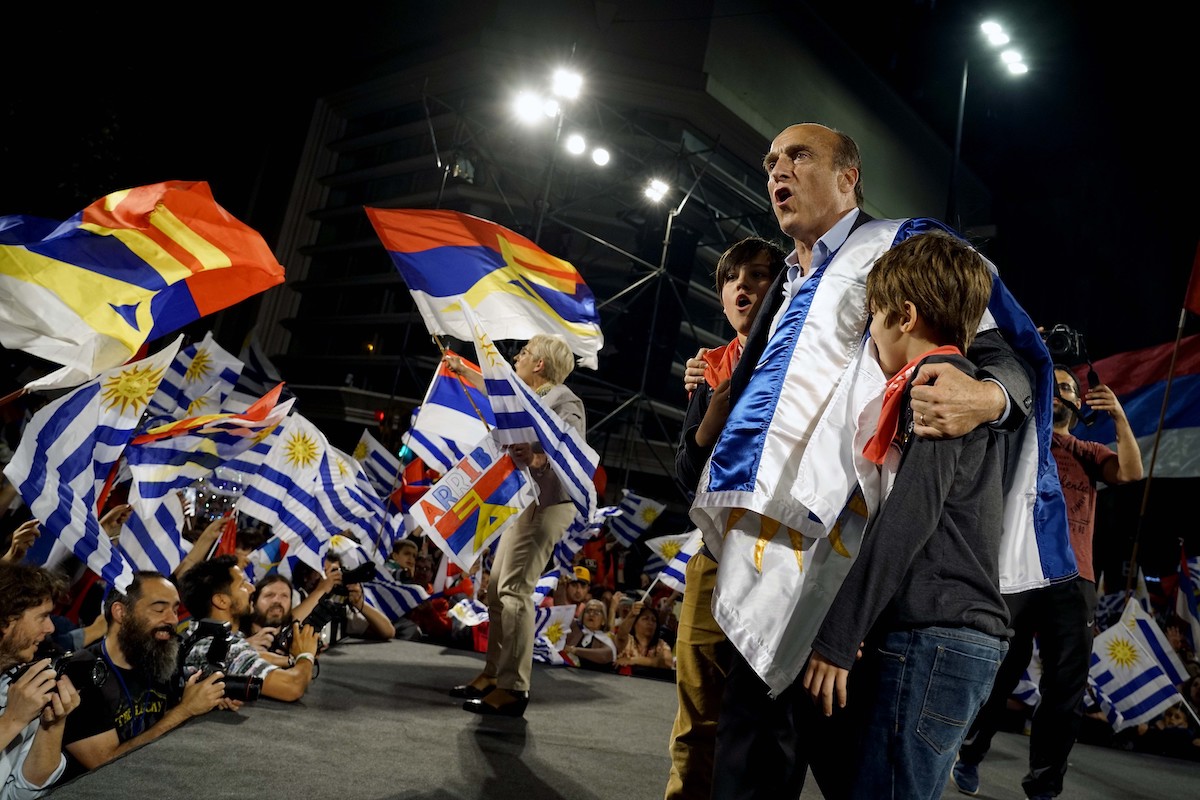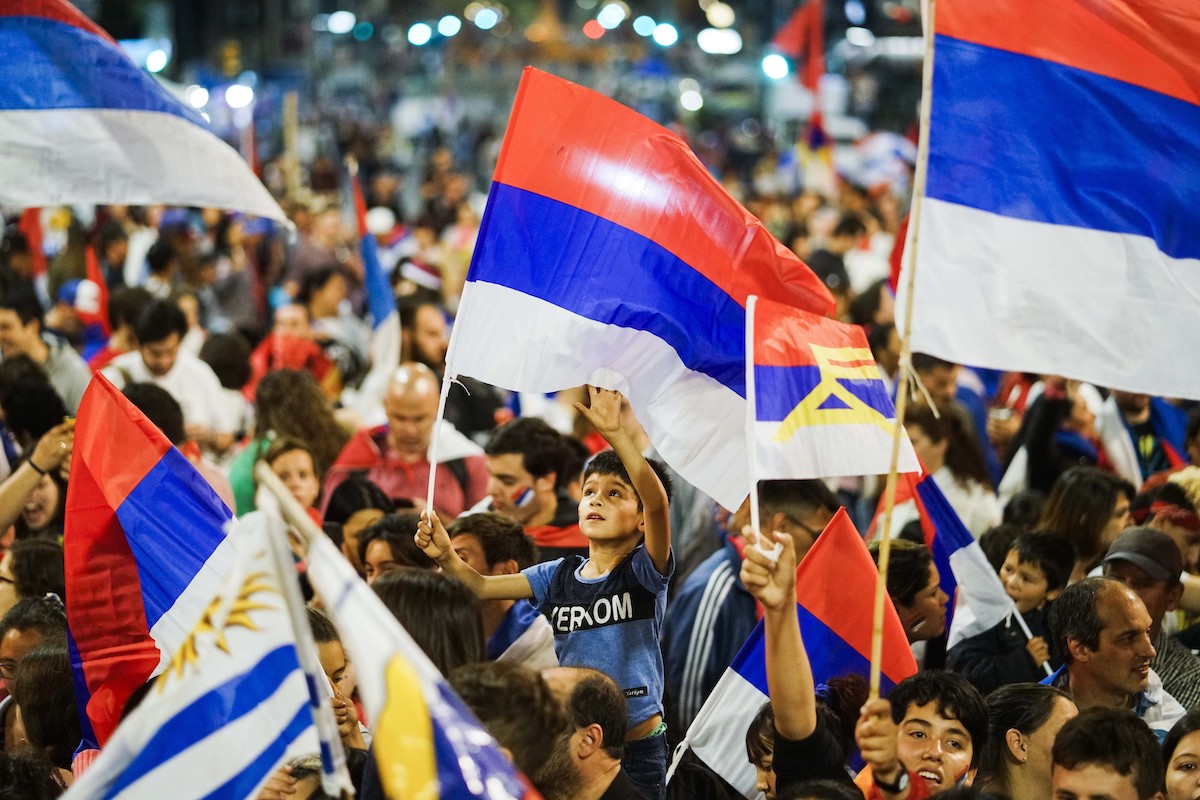

Presidential candidate for the ruling Broad Front party Daniel Martínez, center, with supporters in Montevideo, Uruguay, Sunday, Oct. 27, 2019. The left-leaning Martínez won the most votes in Uruguay’s presidential election Sunday, but he fell short of the outright majority needed to avoid a Nov. 24 runoff, exit polls said. (AP Photo/Matilde Campodonico)
By LEONARDO HABERKORN, Associated Press
MONTEVIDEO, Uruguay (AP) — Uruguay’s presidential election appeared headed for a runoff as neither leading candidate had enough support to win outright in a vote that could see the left lose power in the South American country for the first time in nearly 15 years.
With three quarters of the voting stations counted from Sunday’s election, Daniel Martínez of the ruling Broad Front had 37.5% support and Luis Lacalle Pou, a centrist former lawmaker from the National Party, had 29% support. Neither appeared able to get the 50% plus one vote needed avoid a runoff in November. In third place was Colorado Party candidate Ernesto Talvi with 12.5%.
The left-leaning Broad Front coalition has governed the small nation since 2005 and its achievements include laws to approve gay marriage and the creation of the world’s first national marketplace for legal marijuana.
But opponents have capitalized on growing disenchantment with the government over slowing economic growth and rising insecurity.
Analysts say the Broad Front might have trouble winning in a second round of voting, with a number of other parties having already declared their intention to support the National Party or the candidate with the strongest chance of beating the incumbent in a runoff.
“The results do not bode well for the Broad Front,” said Jenny Pribble, an associate professor of political science at the University of Richmond. “The left party will have a hard time winning in the second round, as the losing Colorado and Cabildo Abierto parties immediately united behind Lacalle Pou’s candidacy.”
On Sunday, both leading candidates emphasized the stability of Uruguay’s democracy in a region that has recently been rocked by social upheaval and protests in countries including Chile, Ecuador, Bolivia and Peru.


Supporters of presidential candidate Daniel Martínez in Montevideo, Uruguay, Sunday, Oct. 27, 2019. (AP Photo/Matilde Campodonico)
“Uruguay has become an oasis of certainties in the region,” said Martínez as he cast his ballot.
Lacalle Pou said that independent of the election’s result, what Uruguay has to offer “is institutionality, knowing what will happen, knowing what can be believed.”
With the Broad Front at the helm, Uruguay has seen significant economic growth. Poverty has dropped dramatically, to 8.1%, while the legalization of gay marriage, abortion, and the sale of marijuana in pharmacies has strengthened the country’s reputation as a trailblazer in the region.
“Even though I’m a Christian and I’m not in favor of things like legalizing abortion, I’m voting for the Broad Front because the country has progressed, people are better off,” said Nicolás Robledo, 24, who works at car wash. “Who could buy themselves a car before?”
But the current administration of Tabaré Vázquez has been hampered by scandals that have taken a bite out of its approval ratings. Vice President Raúl Sendic had to resign in 2017 over corruption allegations, the government has failed to address a dismal high school graduation rate, and a record 414 homicides last year have made public safety an urgent issue.
“I think Martínez is a good person, but I’m not voting for him because I don’t want the Broad Front to win and open the door for some of the shameless people in this government to show up,” said Susana López, a 60-year-old shop worker.
Martínez, a 62-year-old engineer who has held posts in government and the private sector, has urged voters to stick to the process of “change and social justice” that his party promotes.
Lacalle Pou, 47, who was the runner up in the 2014 election, has a strong political pedigree, with a father who was president and a mother who was a senator. He has been plugging his own policies and those of a range of other parties from the center-left to the right that he hopes will help him form a government.
Uruguayans will also elect 99 deputies and 30 senators and they will be voting on a series of referendums on tough on crime measures. They include introducing possible life imprisonment for the most serious crimes, creating a new unit of the military to help with public safety, and scrapping early release of prisoners convicted of the worst offenses.


